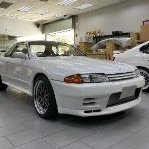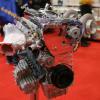Young Car Insurance
Announcements
-
Similar Content
-
Latest Posts
-
I particularly like the look of the John Player Special team. (Thumbnail isn't different but hit play for the clip)
-
By PotatoCake · Posted
Mystery solved, thanks bro Bit of a strange mix, but i dont mind it, still looks good. -
nah no problems with bearings or hubs. just the water pump leak and my AC death
-
Dang I looked at this for so long until I realised it was for the inner rod. I was so confused. This looks like a great tool. Another injected plastic box for my collection. I for one am a torquer. I'm far too anxious and neurotic to not use the correct torques whenever I can. I do honestly feel like my wheels will fall off if I dont.
-








Recommended Posts
Create an account or sign in to comment
You need to be a member in order to leave a comment
Create an account
Sign up for a new account in our community. It's easy!
Register a new accountSign in
Already have an account? Sign in here.
Sign In Now